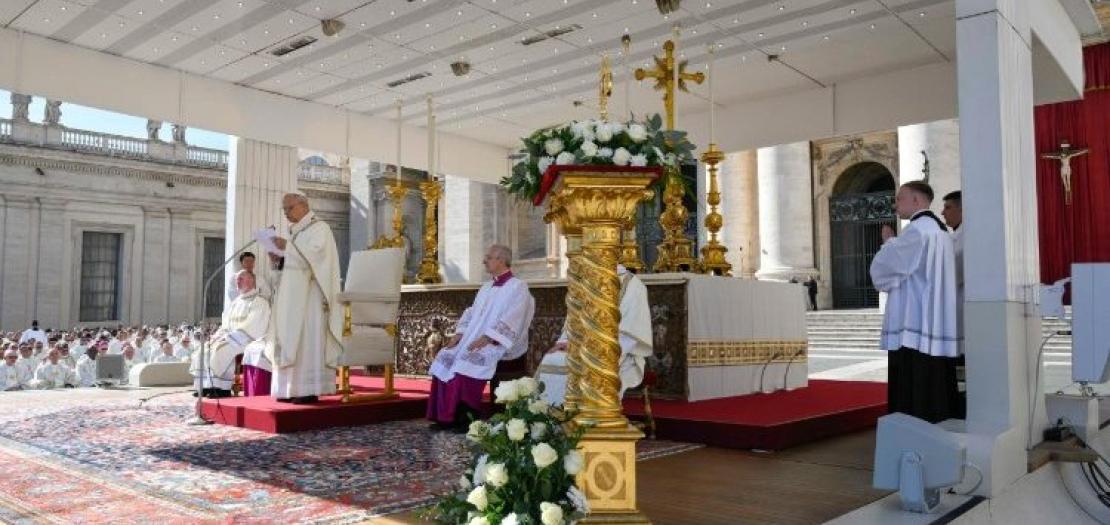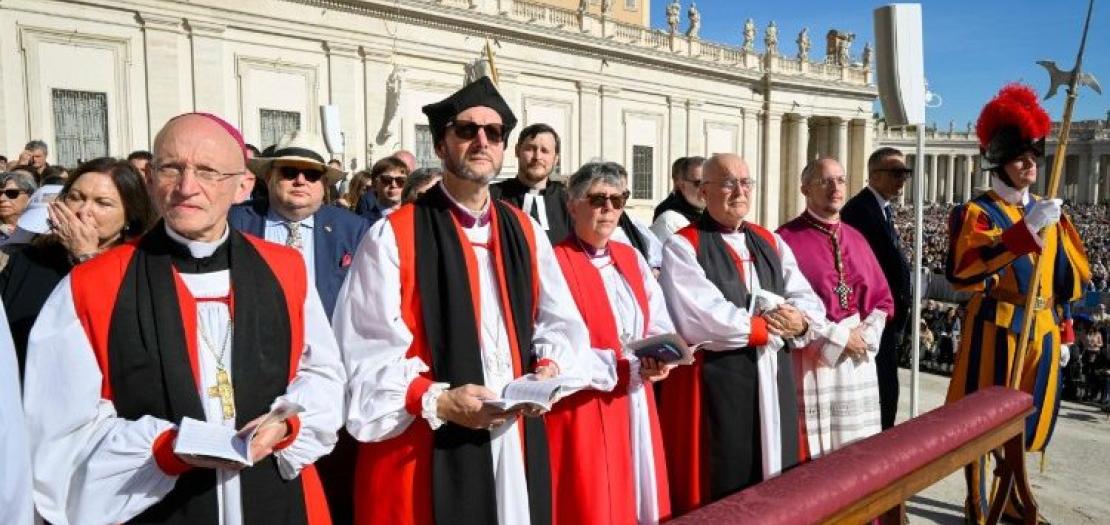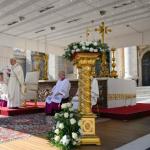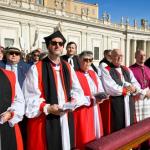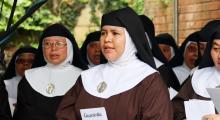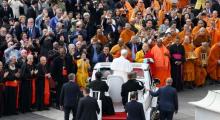Issued by the Catholic Center for Studies and Media - Jordan. Editor-in-chief Fr. Rif'at Bader - موقع أبونا abouna.org
Pope Leo XIV presented Saint John Henry Newman as a master of "theory and practice of education", who invites us to offer the ‘Kindly Light’ of faith in Providence—as in his famous hymn—to "disarm the false reasons for resignation and powerlessness" and to transmit "light and guidance" in this present time, "darkened by so much injustice and uncertainty.” Addressing the thousands of faithful—especially students and educators—gathered in Saint Peter’s Square for the Mass, the Pope invited educators and students alike, "to ensure that schools, universities and every educational context, even those that are informal or street-based, are always gateways to a civilization of dialogue and peace.”At the center of education, real people.
At the center of education, real people
In a square warmed by gentle sunlight, and in the presence of the official delegation of the Church of England led by Archbishop of York Stephen Cottrell, the Pope recalled in his homily that the new Doctor of the Church—the 38th—has left us, especially in his Meditations and Devotions, splendid reflections on “mystery of the dignity of every human person, and also the variety of gifts distributed by God” Life, the Pope said, becomes luminous when one discovers, as Cardinal Newman did, that one has a vocation—a mission—and that "our lives serve something greater than ourselves.“ The contribution each one has to offer, he added, “is uniquely valuable, and the task of educational communities is to encourage and cherish that contribution.”
“Let us not forget that at the heart of the educational journey we do not find abstract individuals but real people, especially those who seem to be underperforming according to the parameters of economies that exclude or even kill them. We are called to form people, so that they may shine like stars in their full dignity.”
Cardinal Newman inspires new generations
At the beginning of the homily, Leo XIV also announced that Saint John Henry Newman has been named co-Patron of the Church’s educational mission alongside Saint Thomas Aquinas.
Cardinal Newman’s impressive spiritual and cultural stature, the Pope continued, "will surely serve as an inspiration to new generations whose hearts thirst for the infinite, and who, through research and knowledge, are willing to undertake that journey which, as the ancients said, takes us per aspera ad astra, through difficulties to the stars."
Education as a search for truth and of service
Reflecting on Saint Paul’s Letter to the Philippians and the apostolic mandate to “shine like stars in the world,” the Pope repeated to educators the words of his Apostolic Exhortation Dilexi te.
“Shine today like stars in the world” through your authentic commitment to the collective search for truth and to sharing it with generosity and integrity. Indeed, you do so through your service to young people, especially the poor, and your daily witness to the fact that “Christian love is prophetic: it works miracles.”
Universities as laboratories of prophecy
Pope Leo reaffirmed that, within the Jubilee understood as a pilgrimage of hope, education represents “an indispensable seed" of hope.
“When I reflect on schools and universities, I think of them as laboratories of prophecy, where hope is lived, and constantly discussed and encouraged.”
Schools as places of listening and living the Gospel
Commenting on the Beatitudes just proclaimed from the Gospel of Matthew, the Pope described them as “the path and message of Jesus the Teacher,” who—contrary to the world’s logic—declares blessed the poor, those who hunger and thirst for justice, the persecuted, and the peacemakers. These, he said, are the signs of the Kingdom of God, which the saints make present among us.
“We are his disciples and are in his “school.” We learn how to discover in his life, namely in the path he has travelled, a horizon of meaning capable of shining a light on all forms of knowledge. May our schools and universities always be places of listening to the Gospel and putting it into practice!”
Freeing humanity from the darkness of nihilism
Leo XIV acknowledged that such challenges might seem beyond our strength, but, quoting Pope Francis from a year earlier, he urged perseverance.
“We must work together to set humanity free from the encircling gloom of nihilism, which is perhaps the most dangerous malady of contemporary culture, since it threatens to “cancel” hope. ”
Guided by the “Kindly Light”
This darkness, the Pope said, recalls Cardinal Newman’s hymn Lead, Kindly Light, composed when he was still an Anglican pastor and sung during the Offertory. It is a light that guides us when we realize our feet are unsteady, unable to discern the horizon. Education’s task, the Pope explained, is precisely to offer this Kindly Light to those imprisoned by “the shadows of pessimism and fear.”
“In that beautiful prayer, we come to realize that we are far from home, our feet are unsteady, we cannot interpret clearly the way ahead. Yet none of this impedes us, since we have found our Guide: “Lead, Kindly Light, amid th’encircling gloom, Lead Thou me on;” “Lead, Kindly Light, The night is dark, and I am far from home, Lead Thou me on.”
Catholic education and the discovery of holiness
The Pope concluded his homily by stressing that “from a Christian perspective education helps everyone to become saints. Nothing less will do.” He recalled Pope Benedict XVI’s words to young people during Newman’s beatification in Great Britain in 2010: “What God wants most of all for each one of you is that you should become holy. He loves you much more than you could ever begin to imagine.” This, Leo XIV affirmed, is the universal call to holiness—the essential message of the Second Vatican Council—“a personal and communal journey marked out by the Beatitudes.”
“[ I pray that Catholic education will help each person to discover their own call to holiness. Saint Augustine, whom Saint John Henry Newman greatly admired, once said that we are fellow students who have one Teacher, whose school is on earth and whose chair is in Heaven.”


